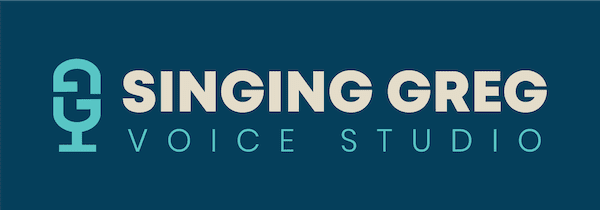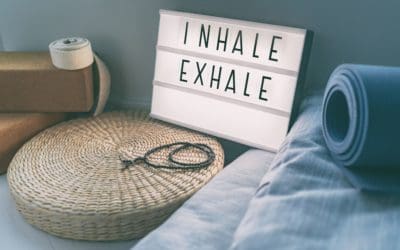There are dozens of possible extracurricular activities you can sign your kid up for. Of course, basketball, baseball, and soccer are all popular choices. However, few offer as many benefits as singing lessons for kids. From teaching discipline to supporting cognitive growth, here are some of the ways singing lessons can benefit your kids for their whole lives.
Singing Promotes Cognitive Growth
Several studies have conclusively shown that practicing musical instruments and singing boost cognitive growth in children. Singing and playing instruments utilize the same areas of the brain as mathematics, and by working out these areas, singing creates new neural pathways and thereby increases cognitive growth. In addition, music has explicitly been shown to improve cognitive and non-cognitive skills twice as effectively as activities like sports, dance, and theatre.
Beyond increasing mental growth, music has also been shown to improve children’s interest in school. According to The National Association for Music Education, music classes have boosted attendance, attentiveness, and interaction in schools, compared to schools with no music classes.
Singing Builds a Better Memory
Similar to promoting cognitive growth, singing and voice lessons for kids help boost memory function. Learning to keep rhythm, memorize lyrics, memorize tune, and connect sound with thought are all habits that promote memory growth. In addition, studies have shown direct links between singing and both short-term and working memory, especially in the memorization of a language.
Learning to sing also promotes habits that help children concentrate. Learning musical notes, connecting written signs to physical actions, repetitive pitch control, and various phonetic exercises help boost concentration, memory, and speech.
Singing Helps With Developing Communication Skills
In singing lessons, kids learn to control pitch, dictation, articulation, and tone, along with a host of other skills that help in communication. In addition, by teaching your kid to sing, you are subtly teaching them how to grow and control their voice and express that voice creatively and healthily.
Many voice actors and public speakers often take singing lessons for these very reasons, as singing helps them gain the mastery over their voice needed for intensive professional speaking.
However, for communication, the most beneficial element of singing is the ability to teach the connection of written and memorized words with speech. Remembering lyrics and reading sheet music when singing helps children practice articulation of written and memorized words; this has been shown to help with general communication, expression of thought, and public speaking.
Singing Lessons Build Social Skills
Singing lessons can be a fantastic social activity for children of all ages to participate in. Be it in private singing lessons, receiving mentorship and education from a teacher, or lessons with other students. Singing lessons teach harmonizations and allow kids to interact with others in a fun, socially healthy environment.
The best thing about learning to sing is that it will enable children to express themselves socially, creatively, and constructively. This helps children build powerful social connections through artistic expression.
Singing Helps Build Self Esteem
Vocal coaching helps children build self-esteem through positive reinforcement of personal expression. When working with a singing instructor, students will be taught proper breathing techniques, pitch control, range control, voice exercises, and lyrical memorization. These skills will help their voice grow in power and inflection over time. As the student’s voice and vocal control increase, the visible improvement will boost their self-esteem.
While private singing lessons certainly help self-confidence, group lessons and public singing can be equally beneficial. By participating with other students, kids benefit from a controlled social circle that reinforces their creativity, expression, and growth. This helps them grow social skills while also building their confidence through positive public expression.
Singing Lessons and Practice Boost Self Discipline
Singing requires time, dedication, and diligent practice. By taking part in singing lessons, children will be responsible for finding time to practice and study. However, even for children who have trouble with self-motivated practice, the continual improvement and growth many find through singing can be an excellent motivator and help hone these skills. Better yet, singing is a fun, expressive activity that often drives them to want to improve and grow.
Singing Lesson Reinforce Their Natural Talents and Teaches Growth
While not everyone has an apparent, natural talent in singing, just about everyone can sing with time and practice. Taking part in singing lessons can help show children that there is a payoff for work and that natural talents can blossom and grow if fostered. This can be great for children who already have the ability to sing, as it helps promote growth and self-improvement, but it can be equally beneficial for children who don’t know they can sing.
There is nothing quite as magical as seeing someone’s eyes light up for the first time when they hit a note or discover that they can carry a tune. For children who have never tried to sing or have tried and failed due to lack of direction, this moment can be eye-opening and inspiring!
Conclusion
Singing lessons are highly beneficial for kids of all ages. These lessons promote cognitive growth, improve memory, foster better social skills, teach diligence along with self-motivation, and cultivate natural talent. These skills help children learn and grow in more ways than just how to use their voice. As children gain the skills taught in voice lessons, you’re likely to see them start to improve in other areas of their lives, as well.
In addition, singing lessons from Greg can help your child grow their voice and help them artistically express themselves. If you would like to sign up for singing lessons, you can follow our link here to find out more.





